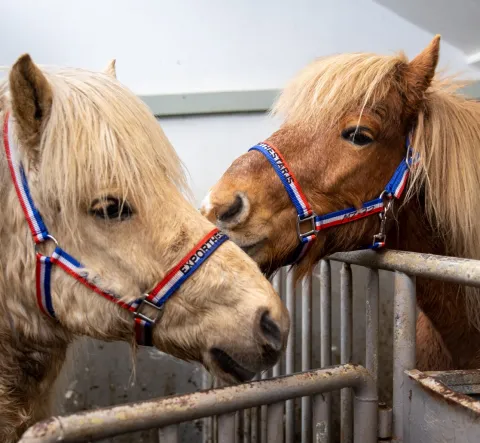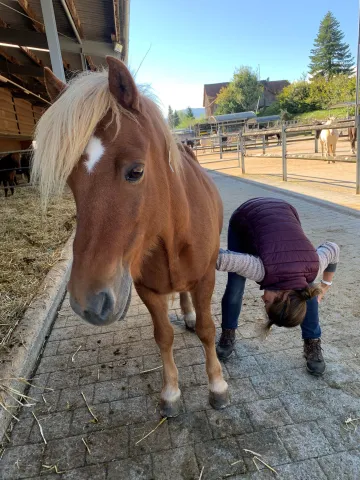To test whether the vaccination protects the horses from developing insect bite hypersensitivity a challenge experiment was performed where the vaccine was tested under real conditions. At Keldur, twenty-seven horses were vaccinated intralymphatic, three times with four weeks interval with 9 major Culicoides allergens in adjuvants. They were transported to Culicoides infested areas in Switzerland in March 2020. The horses have now been followed for three continuous years, with one annual boost, followed by clinical examination and collection of sera, from April until October every year. Twice a year PBMC have been isolated and re-stimulated with the pool of the recombinant allergens insect cell expressed that were included in the vaccine. The clinical part of this study is finished.
Out of the 27 exported horses 15 got IBH or 55.5% which is the number we would have expected in unvaccinated horses. This indicates that the vaccine does not reduce the incident of IBH in Icelandic born horses that are exported to Culicoides infested areas. All the analysis of the various samples, tests and clinical scoring remains to be done. However, the basophil-activation test (allergy test) done at the end of the third summer showed that the IBH. affected challenge horses were low or negative when tested with the vaccine allergens as compared to IBH affected horses living in Switzerland. This indicates that the vaccinated IBH-affected horses are less sensitized against the vaccine allergens than the IBH-affected controls. Analysis of the samples from the challenge experiment is ongoing as well as comparison of the immune response of foals and adults following vaccination with recombinant allergen in alum/MPLA.

